Is it Magic or Mayhem?
My Thoughts about Artificial Intelligence
There has been much hullabaloo about artificial intelligence in recent years. For the record, I have never used ChatGPT for anything, nor have I used AI to create any of my written, visual, or musical works (including any of my writing for WPR).
The only time I have intentionally used AI was to see what it would do to my likeness if I gave it permission. I am sharing the results of that experiment in this issue of WPR, and I have to admit that they are quite good. (There was one image that was egregious and disturbing enough that I deleted it immediately.) The image above is the closest to my current appearance, but the rest of them showcased below certainly took some liberties.
I am extremely wary of AI at the moment because I paid attention in my history classes. The world as we understand it now is riddled with unintended consequences. When Henry Ford created his first working iteration of the Model T in 1908, I cannot imagine he knew the future that he unleashed—countless acres of land used to build highways and infrastructure all over the world, millions of fatalities from car crashes, the resulting worldwide need for gasoline that would grow a polluting oil and gas industry, the high expenses that come with having a car (including gas, insurance, maintenance, and the hefty price of buying one), miserable hours of our lives used up sitting in traffic, and even more land lost to the carcasses of old cars left to rot.
Sure, cars have made travel more accessible to everyone and have fueled economic growth, but we all continue to pay a heavy price.
There are plenty of tech gurus who are praising all of the potential benefits of AI, but there are not-so-minor details they are not bragging about. To create an image, for example, AI aggregates thousands of actual images made by human artists and combines certain ones together to make the new image that was requested. (The images of me on this post are a composite of many images culled from different sources.) The problem, as I see it, is that the original works that AI takes elements from are not credited. Essentially, art is being stolen from actual human artists to generate newer art.
This is problematic, to say the least.
If this can be done with visual work, it can certainly be done with any other art form. It is challenging enough for most artists to make a living from their creative work. Corporate-funded AI companies stand to make millions from several AI advancements.
Job displacement is another important factor. Whose job is secure in an AI-dominated economy? How might AI bring about economic inequality?
Then, there is the cost to make AI feasible. Very large data centers that take up sizable swaths of land are needed to make any of it work. These centers also require tons of energy and water usage to power up and cool down the machines.
In Memphis, TN, a huge AI facility owned by Elon Musk has been built in a historically Black part of the city, and it has lied about the amount of pollution it is creating. The Black and Brown communities affected by this, with much exposure brought on by State Representative Justin Pearson, have been actively protesting against it.
An AI generated search (as most search engines now do) that I carried out with the words “water usage by AI” gave me this harrowing tidbit of information:
“Artificial Intelligence (AI) is significantly increasing its water consumption, posing a substantial challenge to global freshwater resources. By 2027, AI's projected water usage could reach between 4.2 billion and 6.6 billion cubic meters annually, which is 4 to 6 times the annual water usage of a country like Denmark.”
Until they figure out something better with AI, the means do not justify the ends.
As I have all along, I will continue to rely on my own creativity to make my artistic work.
Out of all the images AI created of me, this very last one is my favorite. This might be the world I imagine for myself in my head—colorful, fun, and whimsical.
But make no mistake, I am under no illusion that AI is some sort of savior for us all.
I will sit back and wait for all the unintended, as-yet-unknown, consequences to unravel.
P.S. I have a couple of performances coming up with my music ensemble Ancestral Tongue. Hear us play if you are in Middle Tennessee.
MaxZine’s 60th Birthday Bash
Liberty, TN
Saturday, May 31
8 PM
Grandpa Bar
Nashville, TN
Shoes Off API Writer’s Night
Thursday, June 12
8 PM (Featured Artist)




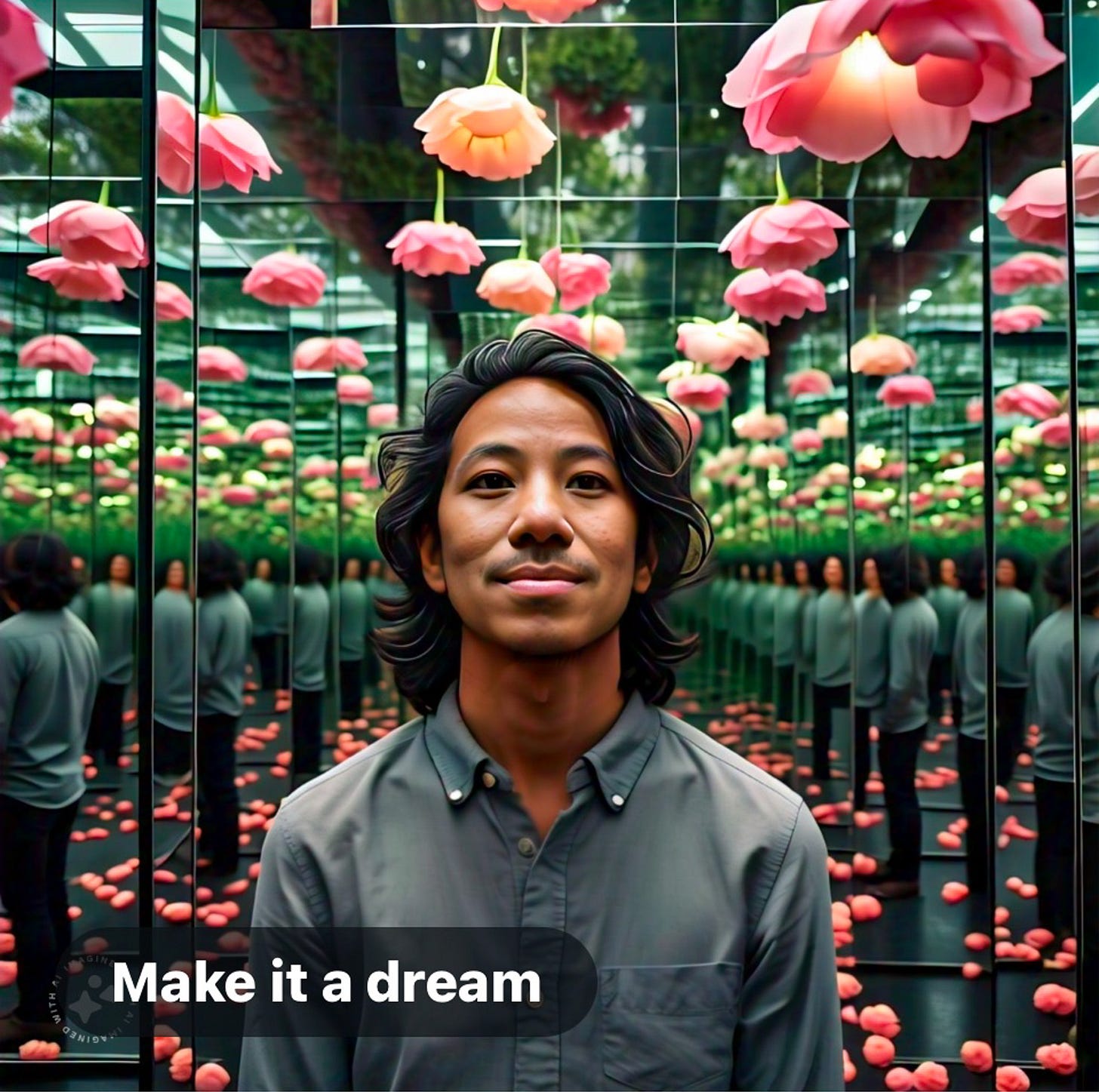

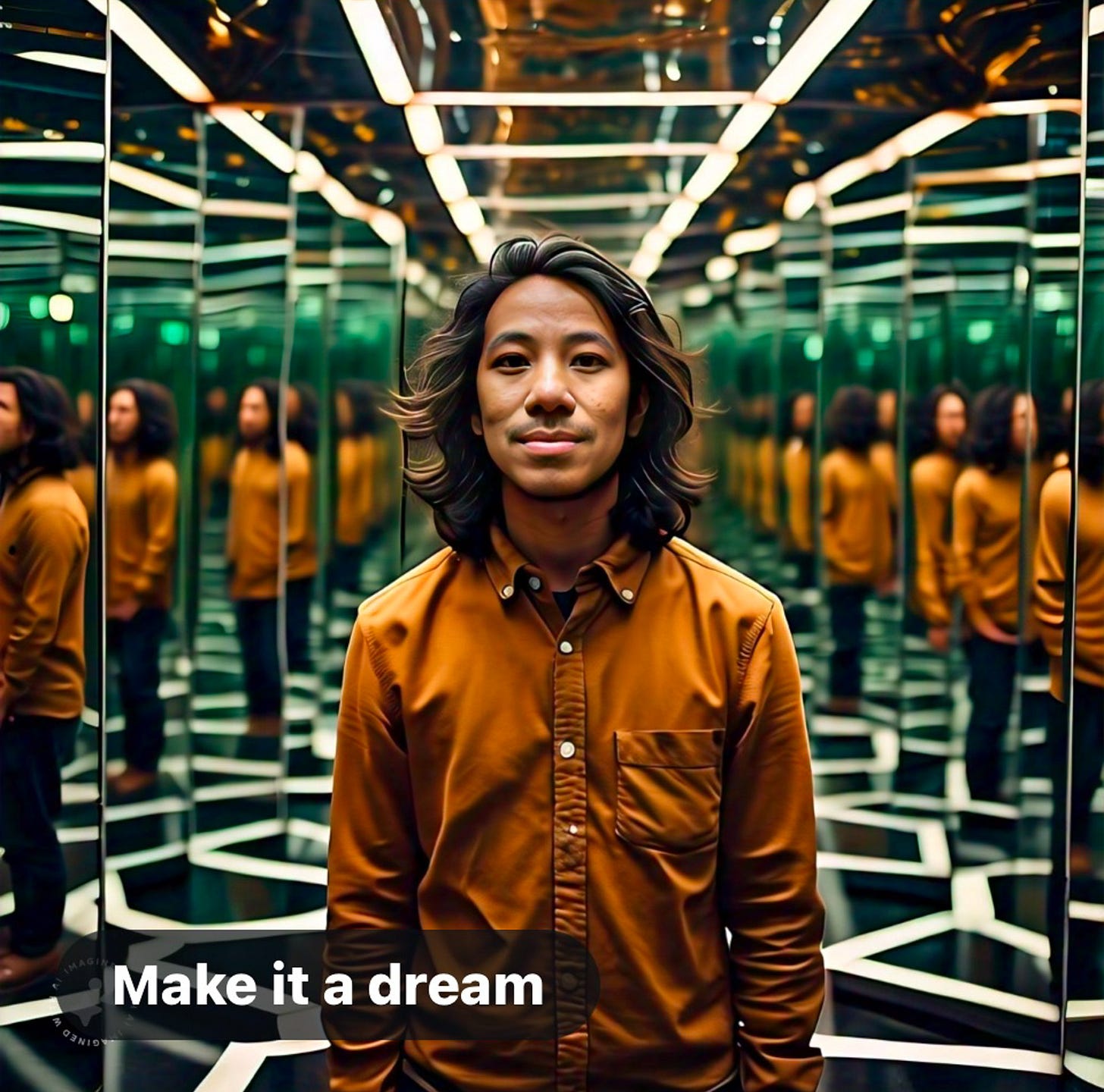
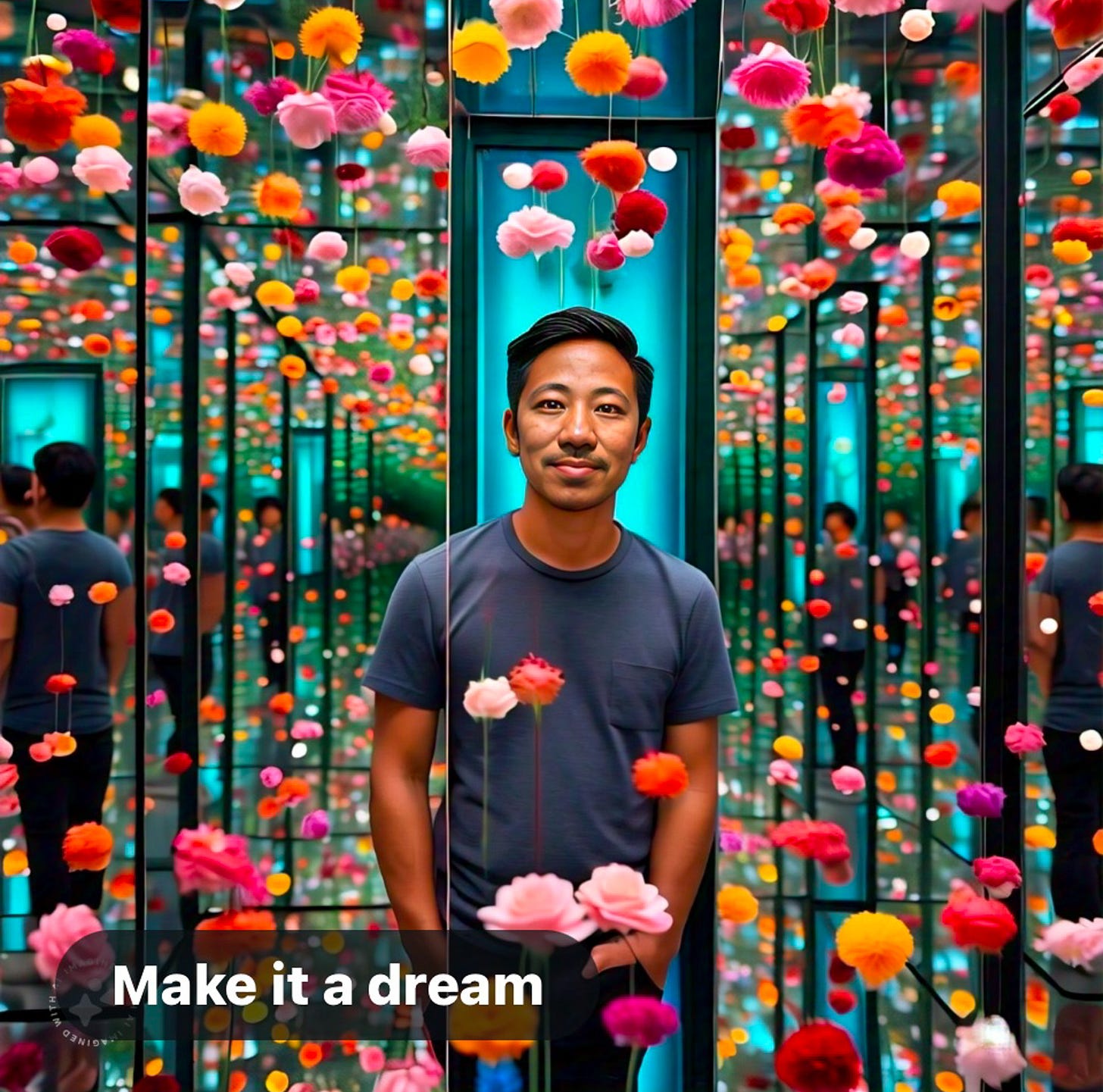
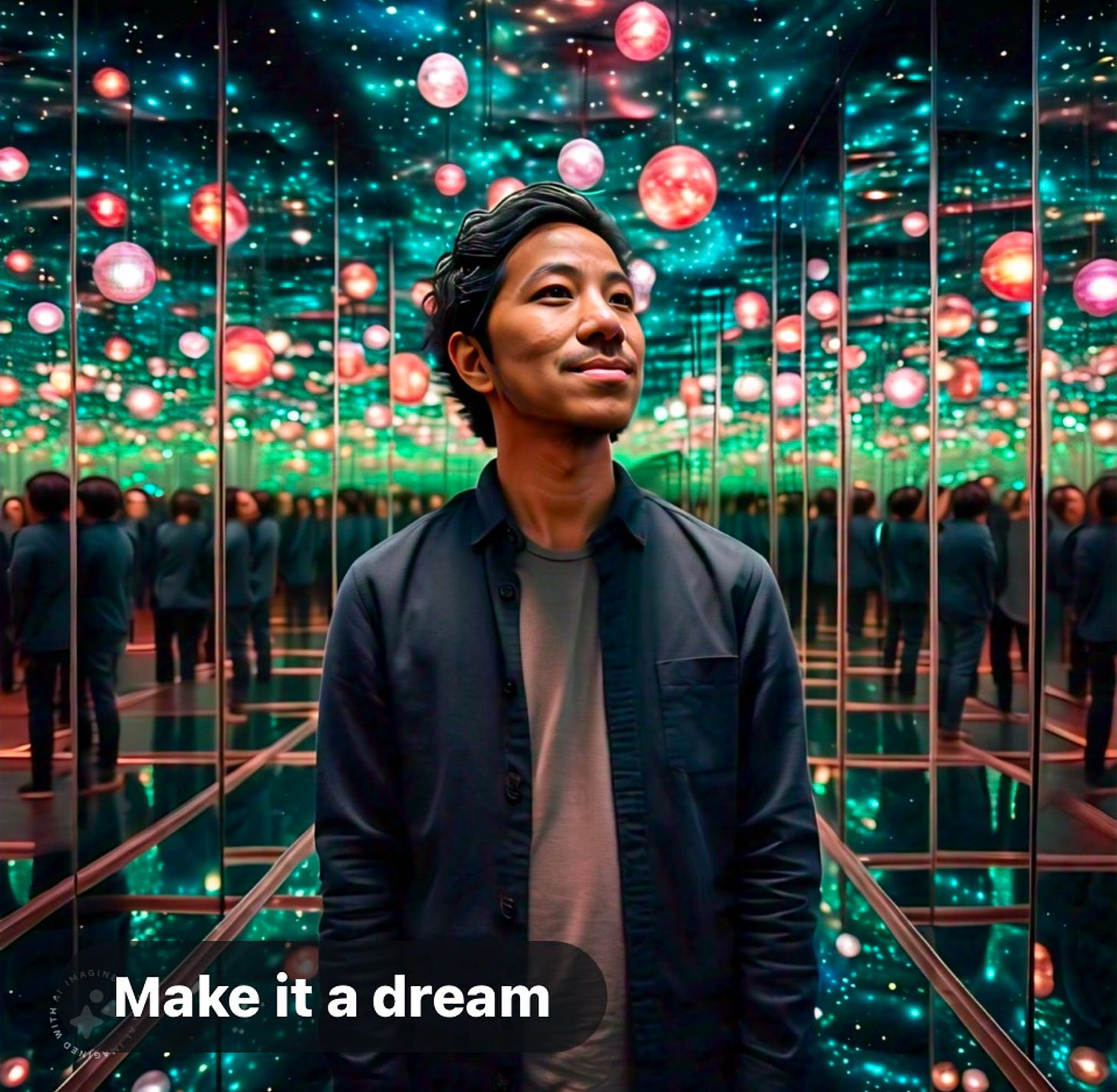
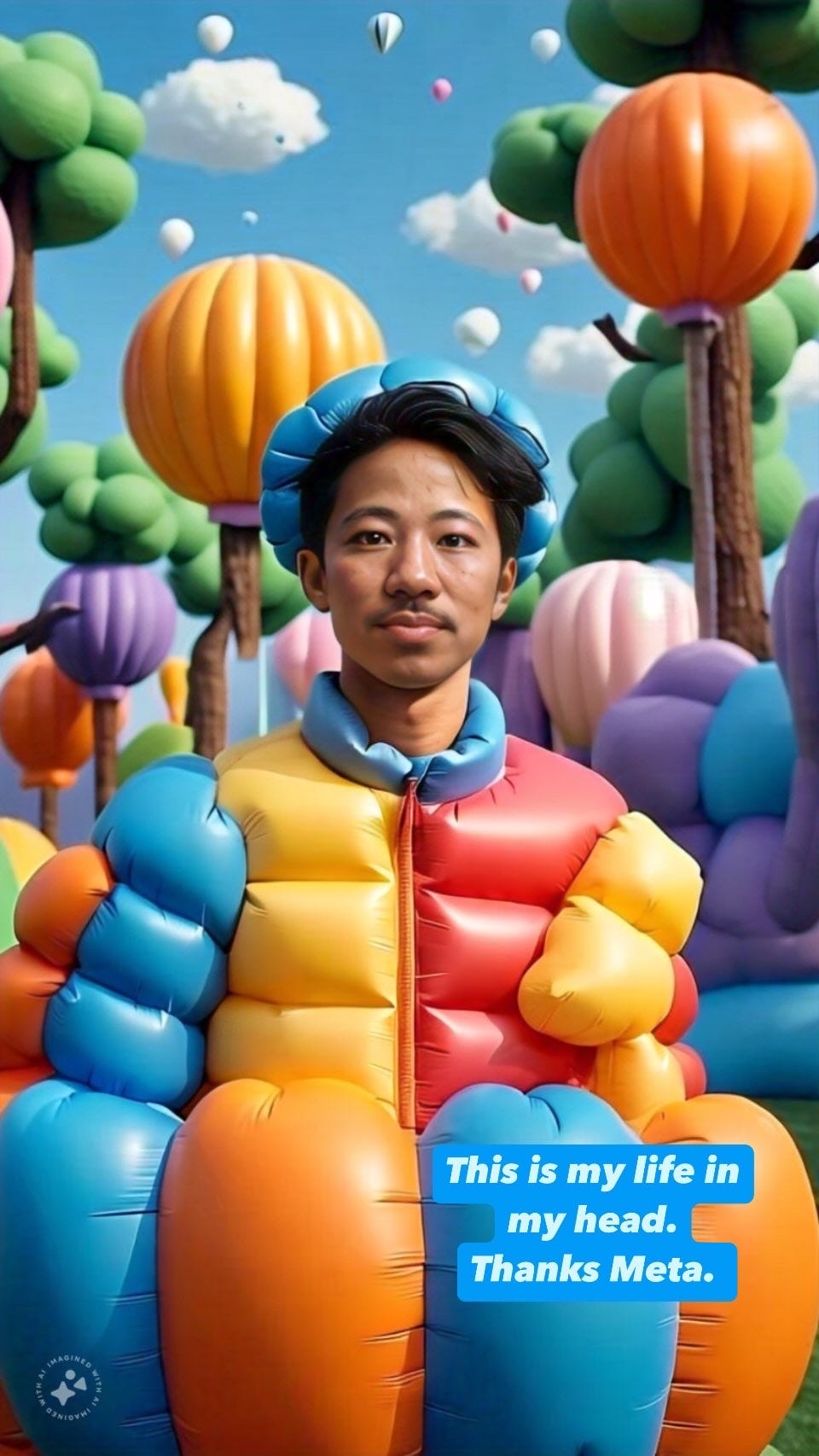
this is nice. i never used chat gpt. but i used perchance, which is better in many ways. i got good results for many things, hit-and-miss with others. i suppose it depends on the getting the prompt correctly. dr. courtney brown of farsight institute insists that at least some ai instances can go sentient. they did some interesting experiments with it and put it on the farsight institute youtube.